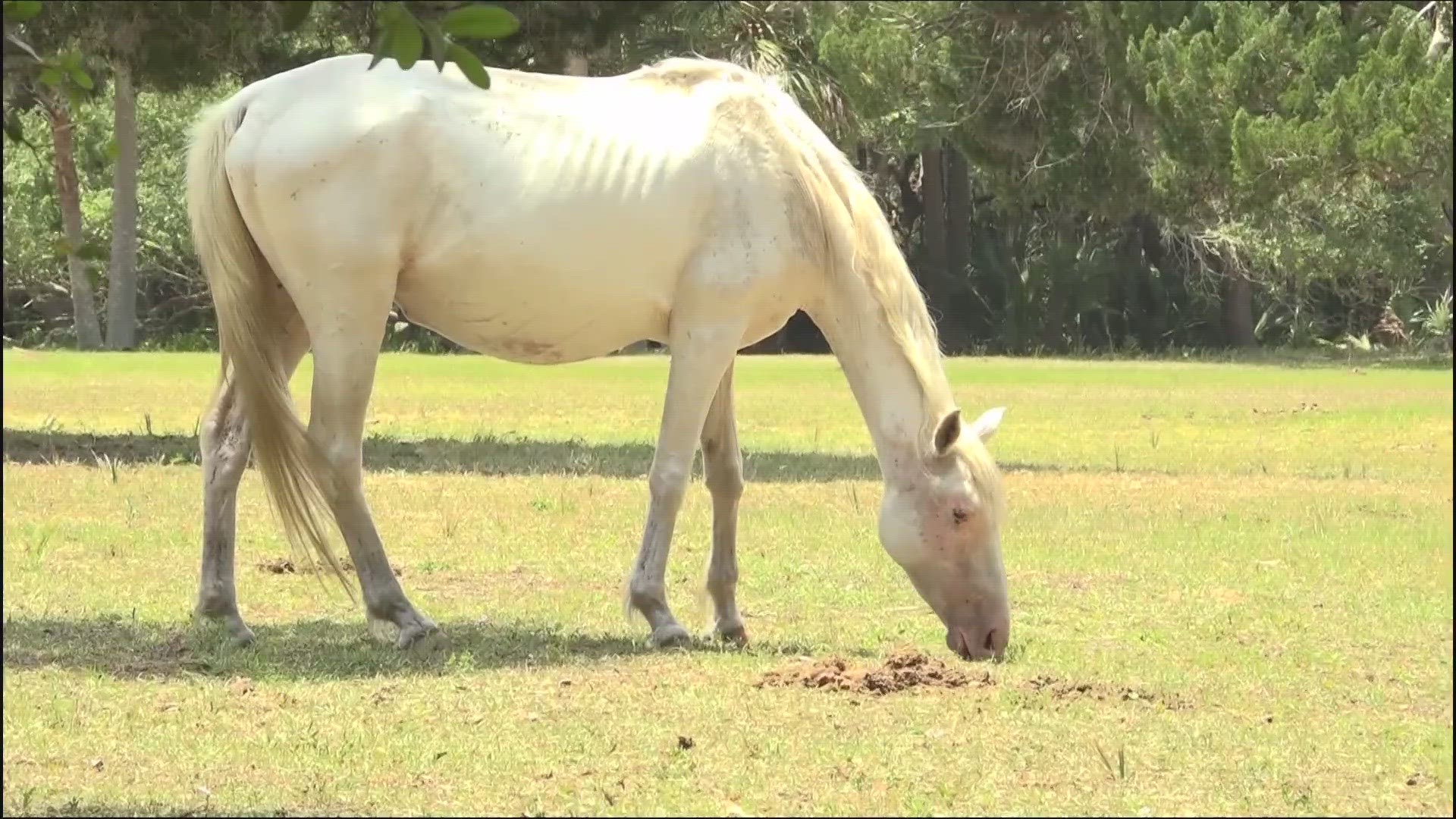CAMDEN COUNTY, Ga. — The wild horses of Cumberland Island in southeast Georgia are "suing" to be removed from the protected federal area, with a civil action filed in federal court in Atlanta back in April.
Two horse advocacy groups, the Georgia Equine Rescue League and the Georgia House Council, filed the lawsuit and took the somewhat unusual step of naming "Horses of Cumberland Island" as a co-plaintiff.
The suit alleges the horses are the victims of "less-than-humane conditions" on the island. It asserts the federal government and State of Georgia both "have known of the destructive impacts to the island's resources caused by feral horses" and "have failed to provide the necessary food, water, veterinary services, and humane care" for the horses.
The result is environmental harm to the national seashore at Cumberland Island and "a horse population that is ill, malnourished, and deprived of a normal life expectancy," the suit argues.
It seeks the removal of the wild horses "as non-native exotic species and livestock from the Cumberland Island National Seashore and the Cumberland Wilderness."
Georgia's Department of Natural Resources commissioner, Mark Williams, filed for dismissal of the lawsuit in May, claiming he "lacks authority under any law to regulate feral horses on Cumberland Island, which is part of the federal National Park Service."
A federal judge has granted the federal defendants named in the suit - including Secretary of the Interior Deb Haaland, South Atlanta-Gulf Region National Park Service Director Mark Foust and Cumberland Island National Seashore Superintendent Gary Ingram - an extension to respond by July 27.
The plaintiffs - including the horses - have until June 27 to respond to Williams' motion to dismiss on behalf of himself and Georgia Department of Agriculture Commissioner Tyler Harper.
The horses are something of a tourist attraction to the island, though the National Park Service notes visitors "have been injured by horses in the past, usually in the form of kicks, bites, and being knocked down."
"Do not approach a horse," the NPS warns.
According to the NPS, the horses are thought to have likely been first brought to the island by Spanish missionaries in the 1500s; the earliest recorded account of horses on the island dates to 1742. The NPS website notes that the horses largely disappeared during the Civil War, but their numbers revived on the island when the Carnegie family brought along more than 50 "pulling carriages, riding, hunting and other recreational activities."
"Throughout the 1900s, new stock was introduced and some horses were taken off the island for sale," the NPS website states. "Property owners on Cumberland managed horses as free ranging livestock from the 1940s until the 1960s. By the time the park was established in 1972, horses had become feral on the island."
The NPS website notes the horses are "non-native" and "compete with native species for habitat and food" on the island. The service currently estimates there are anywhere from 120-148 horses a year on the island.
"The horse herd on Cumberland likely consumes between 200 to 400 tons of vegetation each year, removing up to 98% of it in areas they frequent," the NPS website states. "This impact can cause damage to island resources by destabilizing dunes and streambanks, selectively removing native grasses and forbs, and threatening the biodiversity of native plants and wildlife."

